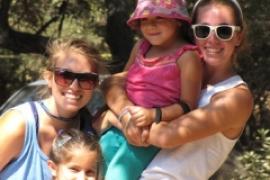American Academy of Pediatrics Recommendations Addressed in the American Camp Association (ACA) Health and Wellness Standards Revisions
Summary
The American Academy of Pediatrics (AAP) recommended changes to camp health procedures in their recent "Policy Statement" called Health Appraisal Guidelines for Day Camps and Resident Camps.
- Camps should make clear what essential functions a camper must have to participate in the camp program so parents can make an appropriate decision for camp enrollment based on medical needs and health services provided.
- Camps need written health care protocols developed with licensed health care practitioners familiar with the camp and whom they enroll.
- All campers should have had a health evaluation within 1 year of camp attendance completed by a licensed health care professional. That exam should have been within six months in certain circumstances (see below). The evaluation should result in a management plan for use by the camp.
- Parents should provide a comprehensive health history to the camp before the child's first day.
- Parents need to update their child's health history as appropriate including any changes in maintenance medications. Drug holidays should be avoided.
- All campers should be in compliance with AAP-approved immunizations.
- All children should be screened shortly after arrival at camp.
- Camp records should include emergency contacts and the indication of parents with custodial authority.
Possible Changes to the Standards Based on AAP Guidelines
Much of the value of the ACA Standards is that they reflect best practices for the industry. For this to be the case, the ACA National Standards Commission (NSC) relies not only on the camp community, but on a host of professionals that support camp. AAP is one such group and has created a thoughtful and thorough set of recommendations related to the health of children in camp. A number of the standards will be re-evaluated in light of their recent publication.
Any changes proposed by the NSC from their September meeting will be shared with the field and the delegates this fall. Issues that seem to have standards implications that were raised by the AAP guidelines include:
- Notification to parents of level of activity in a camp program.
- The gathering of the health history completed by parents before the camp session for camp review to determine a management plan for the camp to deal with specific health conditions.
- Health exam within six months for campers with "clinically significant medical history with implications for ongoing care."
- An evaluation of the health histories prior to the campers' arrival in order to create a camp management plan in response to campers' needs.
Possible implications for ACA standards related to health and wellness based on the AAP guidelines are as follows:
Notification to parents of level of activity in a camp program
AAP recommends that campers have a complete health evaluation by a licensed health care professional, preferably a pediatrician or family physician, within the past year. The evaluation should include the appropriateness of the camp program for the camper.
To help address appropriateness of the camp program, you should provide the parent with a guideline that helps them
determine if their child's ability level is a good compliment to that needed to participate in your camp's programs. To assist you in determining a response, complete the following question: "In order for a child to participate in my camp program, the prospective camper should be able to . . . ." Examples could include dealing with altitude, heat, strenuous activity, distance from health care, etc. ACA will seek legal and medical counsel to help identify sample language that camps can use. Some additional considerations include temperature extremes, water pressure in relation to SCUBA programs, physical activity levels, or requirements for carrying specified weight limits when using backpacks.
Comprehensive health history completion and review by the camp before a camper's arrival at camp
AAP recommends that the health history is received before campers arrive at camp to give your health care staff the time needed to assess medical needs for each camper and have additional conversations with parents/physicians if need be. For reference, health histories are a mandatory standard (HW2) for resident and day camp programs. The challenge is receiving those histories before campers arrive. Making parents aware of this time line is a significant challenge — along with educating them to provide all pertinent information. Your organization needs to consider a policy in the event a camper or staff health history is not received in time. Are there consequences? How does your organization hold parents accountable to the time line and maintain fairness for all involved? How does your organization partner with parents to make this a feasible practice? ACA recognizes that directors have tried for years to get parents to be honest and thorough on health histories. We need to find new ways to make this clear to parents.
Evaluation of each camper's health history before the first day of camp
While standards currently require that both day and resident camps review health histories within twenty-four hours of a camper's arrival at camp (HW8-A), AAP is recommending that each health history be evaluated by a licensed health care provider before a camper's arrival at camp.
A licensed health care provider could include M.D.'s, R.N.'s, L.P.N.'s, or other individuals licensed by your state as a health care provider. The health care provider who is reviewing health histories should know your camp program, the camp's scope of ability to respond to special needs, and the interplay between health challenges and a given camp's program.
The purpose of the evaluation is to develop a management plan for your camp to deal with health conditions that will be at camp that session (e.g., diabetes, asthma, ADHD, allergies, etc.) before campers arrive. Additionally, the camp needs to determine how to work with campers that have medical or psychological issues and identify any concerns your health care staff have with a camper before they arrive at camp so conversations with parents can occur in advance. This will assist you in reducing potential problems after a camper arrives. The goal is to get the camp and parent in dialog before the camp program begins in order to develop a management plan that includes what to do when the planned program doesn't work.
Health exam requirements for campers with clinically significant medical histories
AAP recommends that campers with "clinically significant medical histories with implications for ongoing care" have had an examination within the previous six months. This can include campers with asthma, seizures, diabetes, depression, anaphylactic reactions, or ADHD.
ACA is working with the Academy of Pediatrics to define who is included and excluded from this six-month rule.
Screening process
AAP recommends that within twenty-four hours of arrival to the camp program all children undergo a screening to detect the presence of infectious disease, the camp establishes a health-status baseline, and the camp identifies other health problems such as impetigo or lice. While this does not change the screening process for resident camps, the implications for day camps will be evaluated with AAP discussions.
Will These Recommendations Become Standards?
The NSC takes seriously recommendations from authoritative bodies like the AAP. The NSC also considers which of these recommendations are appropriate as standards and which are appropriate as educational information as the NSC and AAP work together to create strong health care practices. Like all changes to the standards, discussion opportunities for health and wellness standards will be available this fall through several online open hearings or other formats between now and the 2006 ACA National Conference (times for these events are yet to be determined). Final decisions to all standards revisions will be made at the Council of Delegates meeting in Chicago in February through a final vote by the delegates. However, recommendations from authoritative sources such as AAP are strong arguments for inclusion into new standards.
If Approved, When Will New Standards Be Effective?
Once the standards revisions have been voted on and approved by the Council of Delegates, implementation of new standards will take effect in the summer of 2007. Camps must come into compliance with new standards by the time they rotate into their regular accreditation visit cycle. For example, if your camp was visited in 2005, the new standards will take effect during your next scheduled visit in 2008.
Originally published in the 2005 Fall issue of The CampLine.



